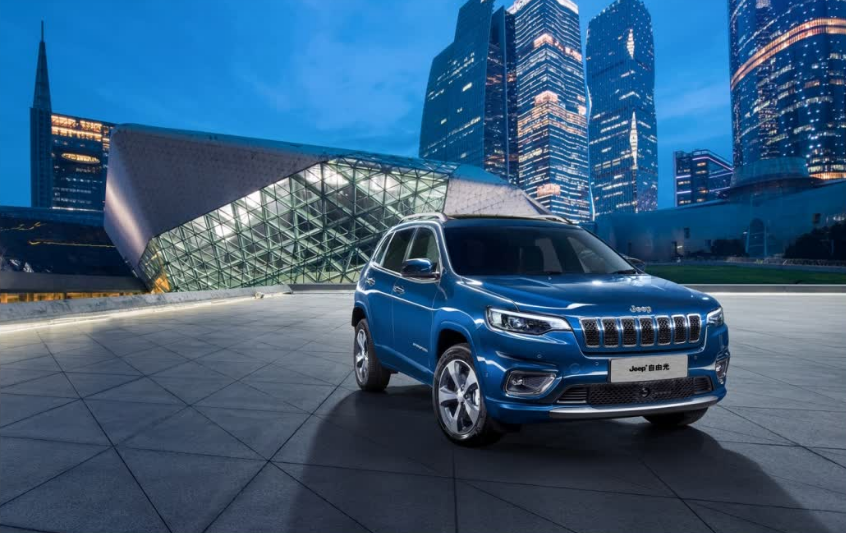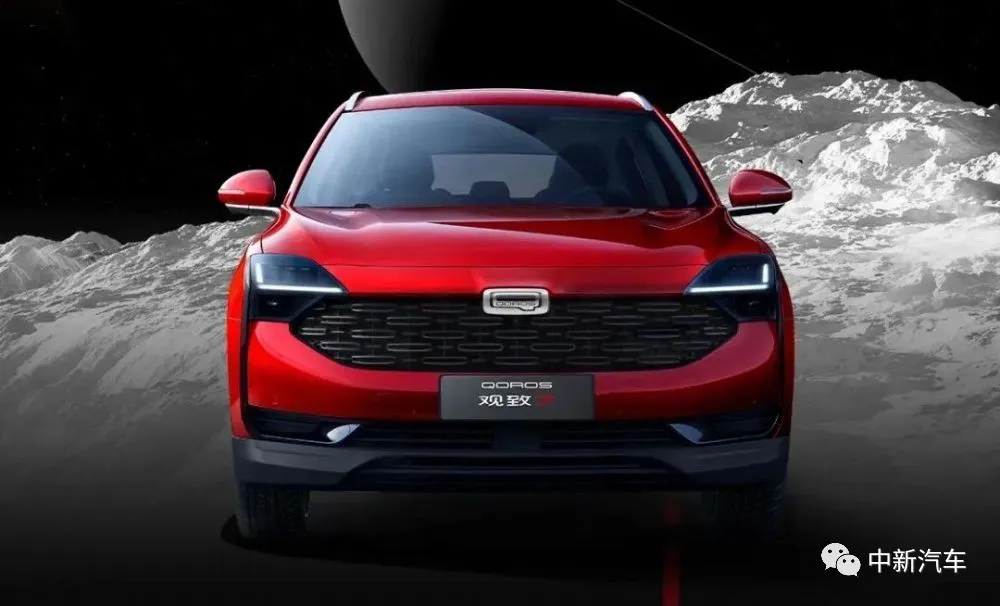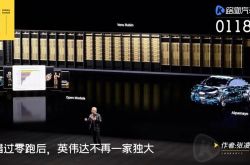Why is the automotive elimination race intensifying?
![]() 08/19 2024
08/19 2024
![]() 532
532
The situation of "75 brands disappearing in 3 years" continues to unfold
Once popular brands like Qoros and GAC FCA have gradually faded from memory after ceasing production, going bankrupt, and withdrawing from the market. However, recent news stories have caused netizens to exclaim, "Memories of the past have come back to life."
On August 6, JD.com's judicial auction platform showed that the asset auction for the bankruptcy liquidation case of Guangzhou Automobile Fiat Chrysler Automobiles Co., Ltd. (hereinafter referred to as GAC FCA) failed again due to a lack of bids. The auction was officially launched on August 5, involving GAC FCA's Changsha plant, buildings, machinery and equipment, and other core assets, with a starting bid of 1.532 billion yuan, approximately 383 million yuan lower than the starting bid of the first auction.
On July 21 of this year, the first auction of these assets, with a starting bid of 1.915 billion yuan, also failed due to a lack of bids. With two failed auctions within half a month, the joint venture company behind the domestic Jeep brand, which has overcome various obstacles, ultimately failed to overcome the mountain of bankruptcy.
Compared to GAC FCA, Qoros' subsequent problems are more daunting. According to Tianyancha's legal litigation information, on August 8, 2024, Qoros Automobile Co., Ltd. (hereinafter referred to as "Qoros Automobile") added a new record of being a person subject to enforcement, with an enforcement target of over 32.57 million yuan, involving a sales contract dispute case, and the enforcement court being the People's Court of Weicheng District, Xianyang City.
Just a week earlier, Qoros Automobile was forcibly executed for over 107 million yuan by the Shanghai First Intermediate People's Court due to a housing lease contract dispute case.
In recent years, the shutdown and consolidation of automotive companies has not stopped but has instead continued to accelerate, with the situation of "75 brands disappearing in 3 years" still unfolding. Although many "endangered" and eliminated brands have been successively taken over this year, ushering in new vitality, not all weaker brands have experienced such a situation.
GAC FCA's Changsha plant fails to sell at auction again
GAC FCA was a joint venture established in March 2010 by Fiat Group (now Stellantis Group) and GAC Group, and was once one of the fastest-growing joint venture automakers in China.
Public information shows that GAC FCA has two major factories in Changsha and Guangzhou, with a total annual production capacity of up to 328,000 vehicles. As one of the core assets, the Changsha plant has a planned capacity of 164,000 vehicles in phase one. In 2017, the peak year for GAC FCA, cumulative sales exceeded 220,000 vehicles, and it was also in this year that GAC FCA's net assets peaked at 4.422 billion yuan. For a joint venture automaker focused on SUVs, such achievements are quite remarkable. The turning point in its fortune began in 2018.
That year, GAC FCA experienced multiple setbacks, including owner complaints, 315 exposures, and dealer network withdrawals, leading to a decline in sales. In response, GAC FCA President Michael Manley reflected, "In 2017, Jeep sales peaked, but subsequently, quality issues such as oil burning emerged, and we did not respond well to solve the problem. This issue dragged on too long, affecting our brand image." The collapse of its reputation, coupled with the lack of new product connections, caused GAC FCA's situation to deteriorate further. In 2020, GAC FCA's annual sales plummeted to 38,600 vehicles, with a capacity utilization rate of only 11.77%. In 2021, annual sales further declined to only 20,100 vehicles. In 2022, GAC FCA's production lines were basically "shut down." Production in March was only one vehicle, followed by zeros.

Image source: GAC FCA
Years of declining sales led to high debt. As of September 30, 2022, GAC FCA's (unaudited) total assets were 7.322 billion yuan, with total liabilities of 8.113 billion yuan, resulting in an asset-liability ratio of 110.80%. Due to the inability to repay all debts with actual assets and the cessation of operations, GAC FCA filed for bankruptcy with the court in October of the same year, officially entering bankruptcy proceedings.
Its Guangzhou plant was subsequently taken over by GAC Aion and transformed into a pure electric vehicle production base. The Changsha plant remained idle for two years without a takeover, and both auctions failed.
The disposal of GAC FCA's assets will continue, but what remains for the market, besides lamentation, are dealers facing difficulties in supplying aftermarket parts and nearly one million Jeep owners (including imported Jeeps).
According to the "Automotive Three Guarantees Policy" issued by the State Administration for Market Regulation and the "Measures for the Administration of Automobile Sales" issued by the Ministry of Commerce, if an enterprise goes bankrupt, automotive after-sales services must meet the demand for after-sales services for 10 years after the cessation of production of the entire vehicle. However, according to market feedback, both imported and domestically produced Jeeps have varying degrees of lack of spare parts. This situation exists in almost every brand that has gone bankrupt or withdrawn from the Chinese market. GAC FCA is not the first and definitely not the last.
Qoros Automobile faces repeated enforcement actions
Compared to GAC FCA, the disposal of Qoros Automobile's factories has gone more smoothly.
At the end of 2022, Qoros Automobile's production line was listed on the judicial auction platform for 122.9 million yuan but was later withdrawn. At the end of April this year, the asset was re-auctioned for 7.3863 million yuan and was finally sold to Shenzhen Fengyu Enterprise Management Co., Ltd. for 6.6476 million yuan in a second auction in May. However, asset auctions are not the main challenge facing Qoros Automobile; the more pressing issue is actually debt disputes. On August 8 and July 31, Qoros Automobile added new records of being a person subject to enforcement, with enforcement targets of over 32.57 million yuan and over 107 million yuan, respectively.
Currently, Qoros Automobile Co., Ltd. has over 30 records of being a person subject to enforcement, with a cumulative enforcement amount exceeding 740 million yuan. Additionally, the company is involved in multiple restrictions on consumption, dishonesty as a person subject to enforcement, and final judgment case information.
Founded in 2007, Qoros Automobile once carried the heavy responsibility of Chery Automobile's push into the high-end market but gradually became an abandoned child due to unfavorable development. At the end of 2017, Baoneng Group began investing in Qoros and later became its major shareholder through equity acquisitions. Yao Zhenhua, the chairman of Baoneng Group, once stated that he would invest 50 billion yuan in the development of new Qoros models, with plans to launch 26 new models by 2022.
However, from Baoneng Group's takeover to 2022, Qoros only launched one new model, the Qoros 7.

Image source: Qoros Automobile
In fact, since 2020, Qoros Automobile has been plagued by negative news such as unpaid wages due to employee resignations, factory shutdowns, and inadequate after-sales services. In 2021, Qoros Automobile's production almost came to a halt. That year, Baoneng Group was also exposed to be struggling with financial issues, and layoffs began on a large scale in the automotive sector. In 2022, Qoros Automobile's real estate and vehicles were seized multiple times. In May of the same year, Qoros Automobile was included in the consumer blacklist by the Shandong Automobile Dealers Association.
At that time, Baoneng Group stated that it was seeking to introduce new investors for Qoros, an "abandoned child." However, with multiple debt disputes emerging and the brand's presence weakening, Qoros ultimately ended up with a bleak withdrawal from the market.
Even until this year, as Qoros' debt disputes remain unresolved and even increasing, the question remains: Who will take over? Li Xiang, CEO of Lixiang Auto, once stated that as the elimination race intensifies, many brands will encounter operational and financial difficulties. If the social loss caused by mismanagement and mergers and acquisitions is 10, the social loss caused by mismanagement and bankruptcy is 100.
From the turmoil surrounding Qoros and GAC FCA, this situation is being verified one by one. In recent years, brands such as Chang'an Suzuki, Dongfeng Renault, Brilliance Renault, GAC Mitsubishi, WM Motor, Byton, Bojun, Saleen, HIPHI, ENOVATE, Yudo, Hengchi, and others have exited the market. Besides turning hundreds of billions of investment funds into bubbles, upstream and downstream stakeholders such as factories, employees, suppliers, and dealers have also accumulated significant debts.
After these automakers collapse, being taken over as a whole can be considered the best possible outcome. However, not all automakers that gradually decline can be taken over, especially new force enterprises without a large automotive group as their parent company.
In fact, as market competition intensifies, even brands that have developed relatively steadily over the years are beginning to encounter survival crises.
On July 25, Honda announced that it would close one of its joint venture plants in Guangzhou in October and another plant in Wuhan, Hubei Province, would cease production from November, with an expected production reduction of nearly 500,000 vehicles. This is Honda's first production cut in China and the largest production cut by a Japanese automaker in China.
On the one hand, the rise of domestic brands and the downward expansion of luxury brands have further compressed the living space of mainstream joint venture brands. On the other hand, amidst the trend of electrification and intelligence, the "halo" advantage accumulated by joint venture brands in the field of fuel vehicles in the past has been continuously weakened.
"The automotive industry will enter a decisive battle in the next three years. Just as the home appliance and photovoltaic industries have undergone mergers and acquisitions in the past, there will be some market behaviors of mergers and acquisitions during this decisive battle, which will last for three to five years. This is the most effective means to grow bigger and stronger," said Wang Chuanfu, Chairman of BYD, at the company's 2023 results conference on March 27. The industry will truly enter an era of elimination, and automakers will face a competition in cost, technology, and scale in this battle of survival of the fittest.
In 2023, Zhu Huarong, Chairman of Changan Automobile, stated that 75 brands had already ceased operations in the past three years, and conservatively estimated that 60% to 70% of brands would face cessation of operations in the next 2-3 years.
Regarding the aftermath of automaker bankruptcies, Ouyang Minggao, an academician of the Chinese Academy of Sciences, stated that mergers and acquisitions by other capable automakers will become the primary solution.
This article is originally created by China News Auto. Welcome to share it with your friends. If any media wants to reprint this article, please indicate the author and source before the text. It is strictly forbidden to use any content of this article to create video or audio scripts. Violators will be held legally responsible.

